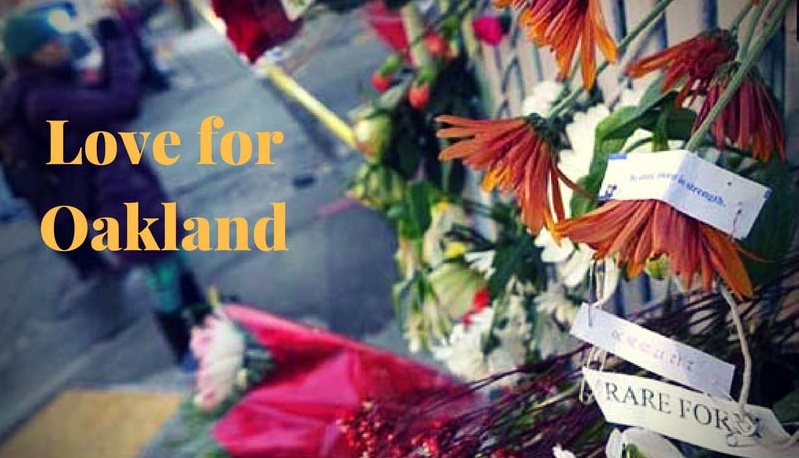
Today Causa Justa :: Just Cause, a community tenants’ rights organization in Oakland and San Francisco, and Tenants Together have released the following joint statement in response to the “Ghost Ship” warehouse fire in Oakland and the current wave of evictions in Oakland and beyond:
As of today, at least 36 have died as a result of the warehouse fire in Oakland where artists lived, worked, and gathered.The City of Oakland has the power to prevent these tragedies. It is not acceptable for owners to continue to profit off buildings that are not up to code, racking up tens of thousands in fines for code violations. The owner of the warehouse was fined often, but never truly held accountable.
The warehouse had been on the radar of the city of Oakland for years and as late as November, a building inspector came to the building but “couldn’t gain access.” There was no follow up plan.
The building owner had a string of complaints and long list of violations over the years. It has been reported the owner has 17 properties. The landlord collected rent for the warehouse and the venue operator collected money from the tenants living there, month after month, year after year.
In a gentrifying city with the 4th highest rents in the country, making do in unsafe housing is a choice people make in order to stay in the city, in order to retain their creative and community networks, in order to make art for a living. This is a choice no one should have to make. No one should have to chose between safety and affordability.
Cities can and must support a code enforcement department that does no harm, and works in the best interest of residents. There are programs in other cities where tenants can pay a reduced rent to the city instead if a landlord does not correct a violation, providing incentive to make repairs. There are code enforcement departments that hire local community members and tenant advocates, helping to provide better community oversight and protections against retaliation. If a building must be red-tagged, cities can provide or incentivize temporary housing and ensure a right-to-return for tenants temporarily displaced. Code enforcement departments must use red-tagging as a last resort, doing everything they can first to legalize units if they are habitable or could easily be made habitable.
Artists and community members should not be punished with crackdowns on underground spaces and evictions. Instead, development of city-owned property could be prioritized to support the arts, and the city could do more to support land trusts as a model for long-term affordability and community ownership. The city planning department can put a priority on bringing buildings up to code, without eviction. The city’s lack of leadership is already fueling a wave of artist displacement in Los Angeles and Baltimore. The City of Oakland has lost much already with the warehouse fire, “cracking down” and punishing residents is a horrifying response to this loss. Instead of helping to drive artists out of the community, it could support artists by developing communal art spaces that are safe and deeply affordable. Oakland and other cities in California must pursue solutions to bring the community together over this tragedy, not tear it apart.
Real solutions to the housing crisis are needed now. Many Californians, not just in Oakland, are living in overcrowded, uninhabitable conditions and are paying more than half their income in rent. Meanwhile cities primarily produce luxury market-rate housing (if they produce any at all), lack strong anti-displacement policies, and code enforcement departments don't prioritize the needs of tenants.
We need to change our priorities to protect people first, not profits. Instead of housing policy for the few, we propose these guiding principles to inform state and local legislative solutions:
-
Does the proposed solution focus the state's limited resources on meeting the most-pressing housing needs, i.e. people who don't have a home or low and moderate income families paying an astronomical portion of their income for housing?
-
Does the proposed solution support creation of jobs paying family-supporting wages?
-
Does the proposed solution require all communities to take responsibility for making their housing accessible to people at various income levels, especially local workers?
-
Does the proposed solution protect the state's natural beauty and support its climate change goals?
-
Does the proposed solution support existing and long term residents to remain in their community?
These principles were endorsed Monday 12/5/16 by a broad coalition of labor, environment, tenant, and community organizations. To read the full principles and policy framework, click here.
A petition to sign on to this platform, is available here.
Master list of Ghost Ship support
Related:
